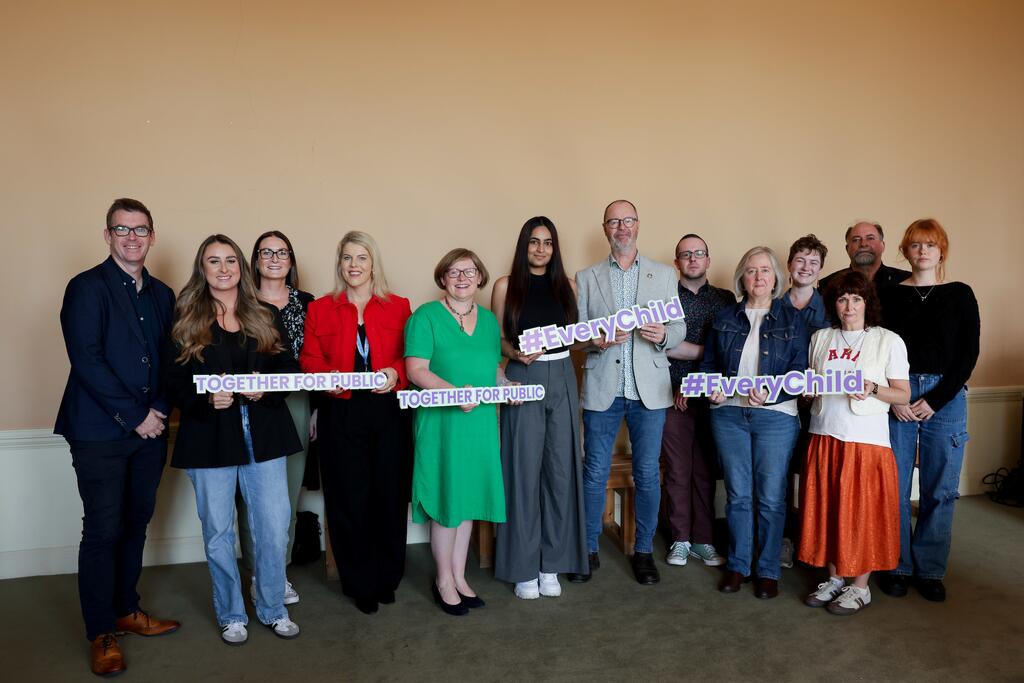
On Thursday 19th September, 2024 a new civil society alliance, Together for Public, called for the introduction of a public system of early childhood education and care to address the crisis in Ireland’s childcare system. Led by the National Women’s Council, the Alliance brings together over 30 organisations, including the INOU, calling on all political parties to pledge to deliver a Public System of Early Childhood Education and Care in their General Election manifestos and as a core part of the next Programme for Government.
Ireland has the highest level of private provision of Early Childhood Education and Care (ECEC) of any OECD country. Currently, ECEC costs in Ireland are among the highest in the EU, consuming a significant portion of household income, leaving many families struggling to cover other competing outgoings such as mortgage/rent, bills and groceries.
Many families are unable to access ECEC, due to lack of flexibility and the limited number of spaces available – particularly for under 2s. Rural and disadvantaged urban areas are also underserved by private providers where there are even less incentives to operate. Yet, all children, including children from marginalised and minority groups, should have equal access to high quality early education.
Due to the gender-imbalance of care duties, women are disproportionately impacted by the ongoing ECEC crisis. It is women who are primarily forced to choose between family responsibilities or paid employment, education, community life, and leadership roles.
Recruitment and retention pose a significant challenge to service provision. Staff turnover is driven by low pay and poor conditions for those who work in the sector. A wholly private, for-profit-driven system will never meet the needs of a changing society.
A public system of Early Childhood Education and Care
A public system would guarantee every child a statutory right to a public-funded and provided ECEC place, available in all communities at an affordable level, similar (though not identical) to our primary school system.
Developing a public and integrated flexible ECEC system should be seen as a public good, a vital public service. Enabling women to participate equally in society and supporting the rights of all children, ECEC helps break cycles of poverty and gender inequality.
A public system of ECEC involves state responsibility and engagement in all aspects of ECEC, not just funding. It takes into public hands the tasks of design and planning, administration (including payment of educators’ salaries), oversight and accountability through standard frameworks (like the current Aistear framework). It will also require expansion of the community sector and rollout of public-delivered ECEC services alongside private provision.
The introduction of a new “Public Childcare System”, including piloting of a public-delivered model of ECEC, should initially be rolled out in areas underserved by private providers. Through legislation, every child should be guaranteed a statutory right to ECEC.
At the same time, Government must continue to support existing private provision of ECEC. Existing schemes should be reformed to include a fee-capping scheme and the state becoming directly responsible for negotiating and paying staff wages, alongside a buy-out scheme for private providers, particularly those struggling/retiring, so they can opt-in to the public system.